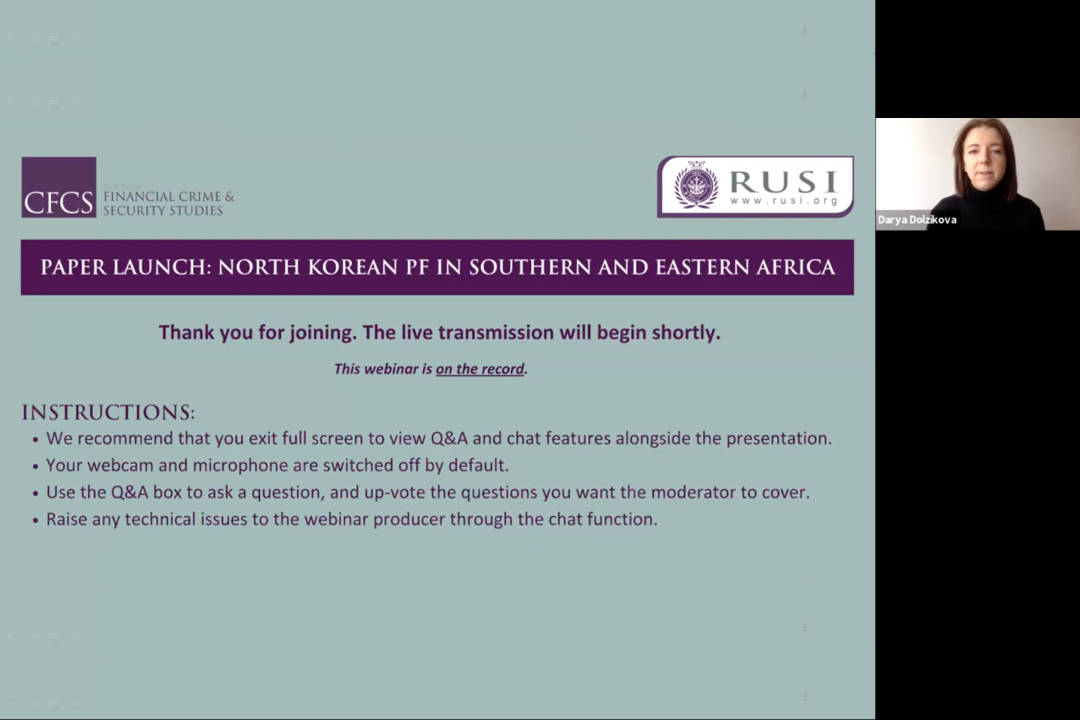Soliciting broad buy-in on compliance with UN sanctions on North Korea must go beyond normative arguments and threats of punitive measures. Identifying country- and region- specific benefits of compliance and consequences of non-compliance is a valuable exercise.
On Friday, the United Nations Panel of Experts on North Korea released its latest report, detailing continued North Korean sanctions evasion activity around the world. The broad scope of UN Security Council sanctions on North Korea has meant that almost all economic and financial engagement with North Korean entities is prohibited. These sanctions measures have been adopted in large part in response to the country’s proliferation of weapons of mass destruction (WMD) – both to incentivise a change of behaviour in Pyongyang, as well as to cut off the regime from funds that it could invest into the expansion of its WMD programme. Yet, as the latest report and its precursors highlight, North Korea continues to circumvent UN sanctions and to generate and move revenue in support of its WMD activities.
An upcoming RUSI paper by Darya Dolzikova and Anagha Joshi examines North Korean proliferation financing activities in southern and eastern Africa in particular. The paper identifies a number of factors which may be behind Pyongyang’s continued success in evading UN sanctions in that part of the world. Some African governments may not fully understand their UN-mandated obligations when it comes to countering North Korean proliferation financing activities and may in turn fail to communicate and enforce these obligations across their private sector. Others may knowingly refuse to comply with UN sanctions on North Korea because they see some benefit from engaging with Pyongyang – for instance, business opportunities, or access to cheap arms or to replacement parts for obsolete weapon systems that only North Korea is able to provide. Some governments wish to preserve long-standing diplomatic and personal relationships with Pyongyang. The authors’ previous work studying North Korean proliferation finance patterns in other parts of the world suggests that these factors are relevant outside of the African continent as well.
However, in many cases, governments appear to have not instituted or enforced the mechanisms necessary for countering North Korean proliferation financing activity due to a lack of resources and capacity. Where national budgets are tight – as they are in many sub-Saharan African countries, as well as in other low- and middle-income states around the world – countering North Korean proliferation financing often fails to make the list of priorities that governments choose to dedicate resources and efforts to. In relation to the myriad of other challenges faced by these governments – from widespread corruption and struggling economies to organised crime and armed conflict – the presence of a few North Korean medical professionals or construction workers appears trifling. Yet both these activities are violations of UN sanctions on North Korea and both have been highlighted in Panel of Experts reports – including the most recent one – as examples of ongoing North Korean revenue-generating activity in Africa and elsewhere. The fact that such fundraising efforts are often several steps removed from the direct financing of North Korean WMD proliferation further trivialises these activities and deprioritises them as threats worth addressing.
So how does one get these governments on board, when North Korean sanctions evasion has to be set against the other challenges they must address? Punitive measures attached to international sanctions obligations have some value. Being placed on the list of high-risk and monitored jurisdictions by the Financial Action Task Force (the global standard-setter for countering financial crime) or having entities within their territory designated by the UN for facilitating sanctions evasion can have important negative consequences for a country’s economy. Such actions indicate a higher risk exposure for operating in these countries, thus discouraging banks and other businesses from investing or operating there. These consequences can be important motivators for ensuring compliance with international obligations. However, failures of compliance usually have to be quite significant and systemic for such punitive measures to be applied. Additionally, governments may assess that the short-term consequences of not prioritising efforts and resources to address serious corruption or violent crime, for instance, may outweigh any potential fallout from failing to repatriate a few dozen North Korean workers in order to comply with UN obligations.
Efforts to strengthen compliance with UN sanctions on North Korea should therefore place a greater emphasis on identifying and clearly communicating the intrinsic value of countering particular North Korean activities, as well as the region- and country-specific consequences of non-compliance. Countries could be encouraged to address North Korean wildlife smuggling not just because it constitutes UN sanctions evasion, but because it negatively impacts regional biodiversity, can fuel organised crime and violence, and may create opportunities for the spread of disease and life-threatening viruses. Governments may wish to avoid hiring North Korean construction workers not only because the UN told them they shouldn’t, but because North Korean labourers deployed abroad by Pyongyang are reportedly subjected to gruelling working conditions that some have compared to forced labour. A large fraction of the earnings of these workers is confiscated and sent back to the regime. North Korean construction projects have also been reported to be of poor quality and may rack up maintenance and repair costs or potentially harm human lives. Furthermore, North Korean medical clinics in Africa have reportedly operated illicitly and in unsanitary conditions, and may thus have placed the health and safety of patients at risk.
Additionally, strengthening a country’s UN sanctions compliance or counter-proliferation finance regime will in many cases kill multiple birds with one stone. The upcoming RUSI paper identifies numerous legal, regulatory and operational gaps in southern and eastern African countries that preclude the effective implementation of UN sanctions on North Korea. However, many of these shortcomings may also facilitate other forms of crime. The paper’s recommendations on strengthening UN sanctions compliance are therefore likely to be helpful in tackling a much broader spectrum of financial and organised criminal activity. For instance, improving the transparency of a country’s corporate registry not only helps identify business connections to sanctioned North Korean entities, but also facilitates identification of illicit corporate networks used for other criminal activity. The establishment of a mechanism for efficient sharing of information on suspected instances of North Korean sanctions evasion between banks and relevant government agencies can also be used to improve information-sharing on other forms of financial crime. Similarly, increasing the transparency of a country’s defence and other governmental procurement processes can help to discourage illicit purchases of North Korean military equipment, while also improving government accountability more broadly and decreasing opportunities for corruption.
The value of identifying points of synergy between international obligations and domestic priorities has been previously noted in an assessment of foreign assistance provision for the implementation of UNSCR 1373 and UNSCR 1540 provisions – UN resolutions targeting terrorism and the proliferation of WMD to non-state actors, respectively. It is likely to be a useful exercise when it comes to convincing governments of low- and middle-income nations to strengthen efforts on countering North Korean sanctions evasion as well. In many cases, such an approach is likely to prove more effective than simply appealing to the normative importance of sanctions compliance or the punitive measures attached to non-compliance. Failing to take into account regional and country-specific circumstances is likely to only engender deeper scepticism, frustration and – in worst cases – defiance among some jurisdictions in relation to their UN sanctions obligations. When it comes to strengthening international efforts to counter North Korean proliferation financing, as with all other things, context and on-the-ground realities matter.
This blog draws on analysis contained in an upcoming RUSI Occasional Paper on North Korean proliferation financing activities in southern and eastern Africa by Darya Dolzikova and Anagha Joshi.


WRITTEN BY
Darya Dolzikova
Senior Research Fellow
Proliferation and Nuclear Policy

